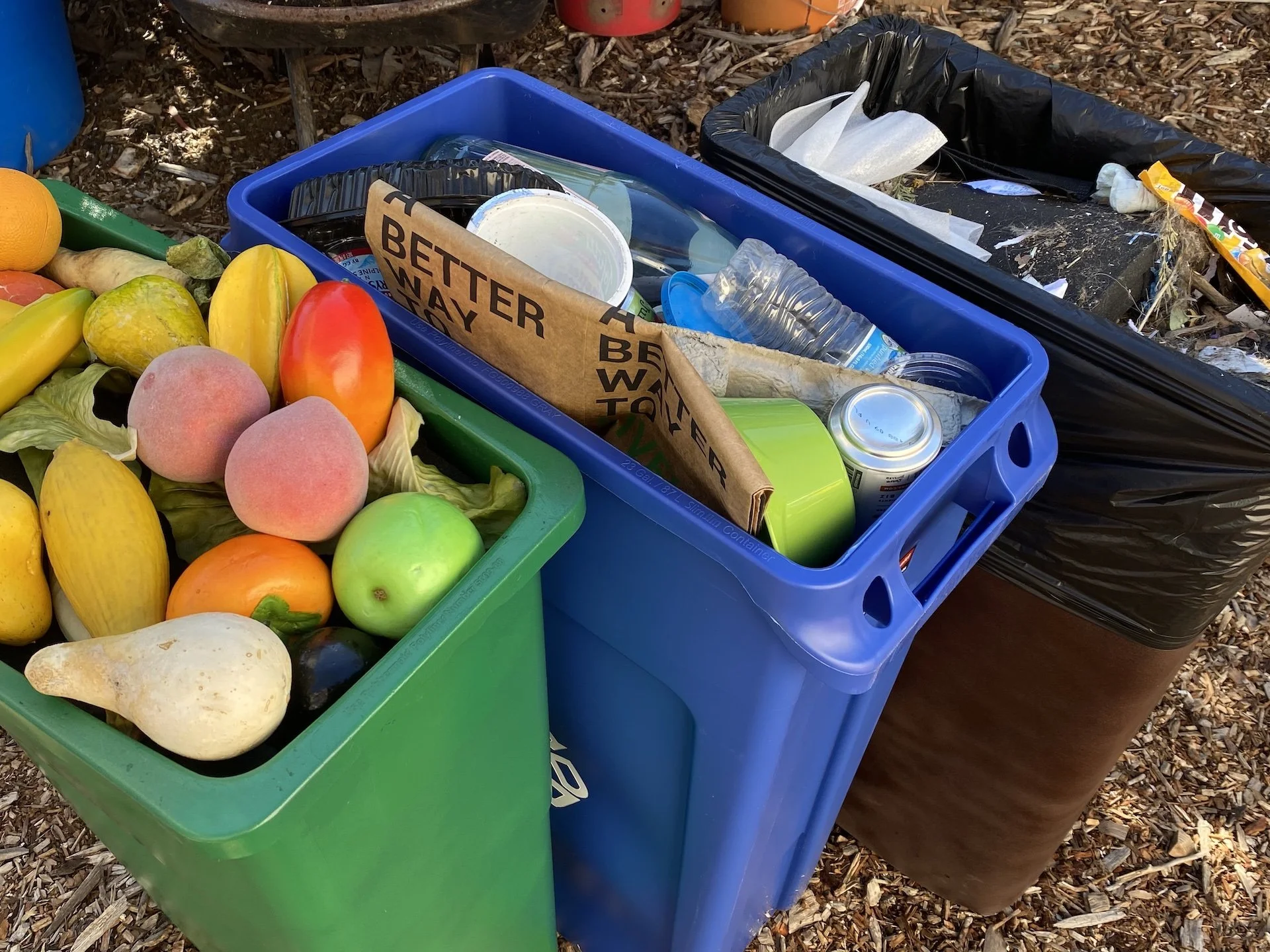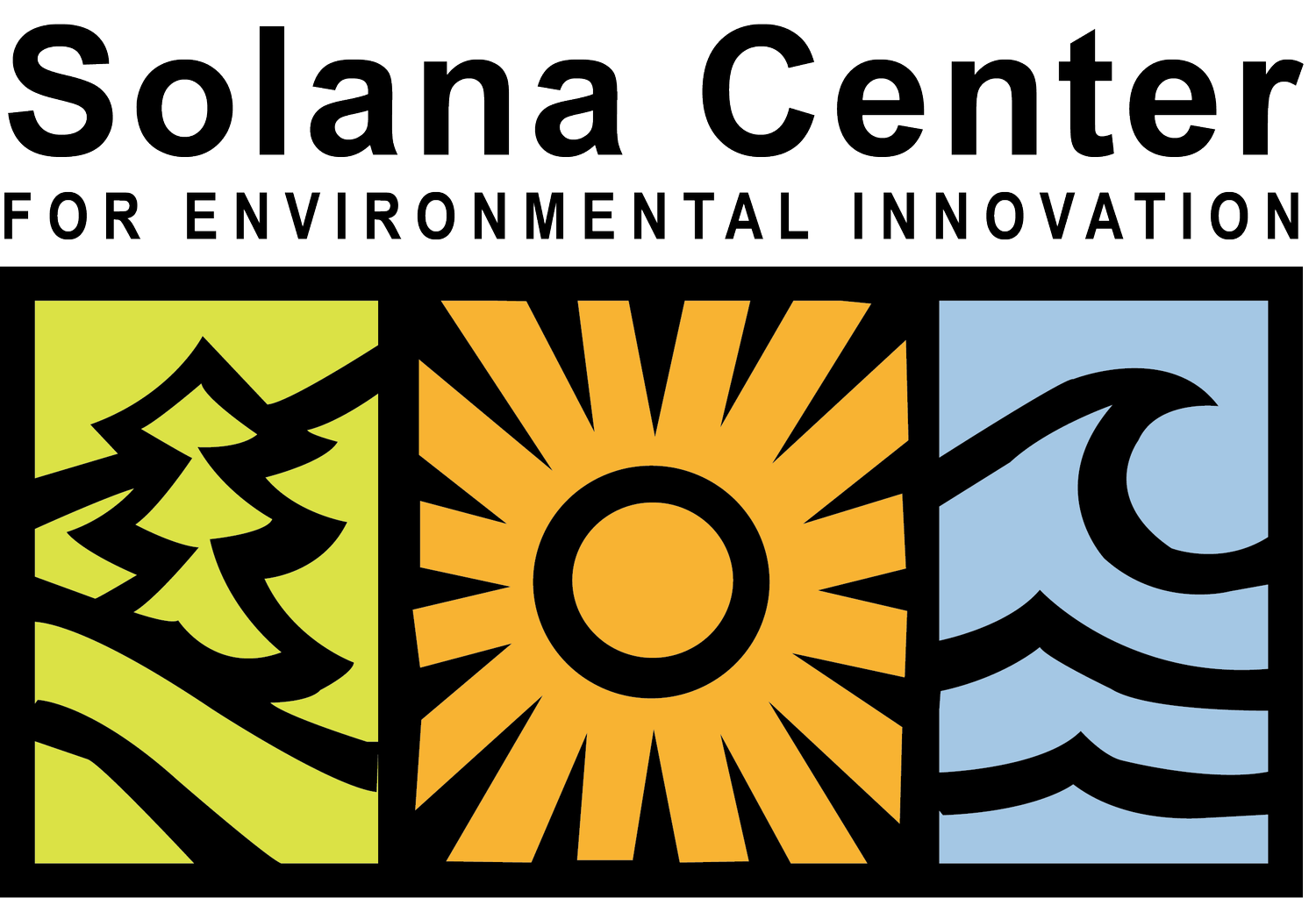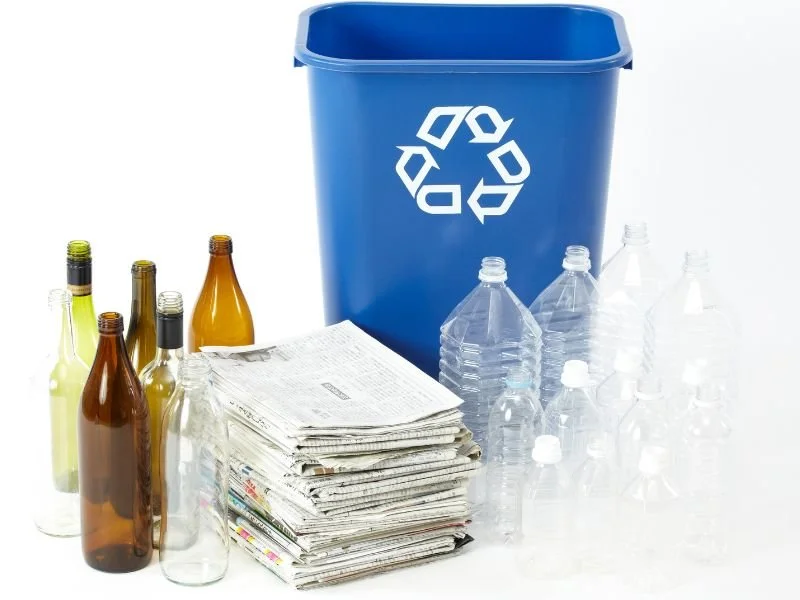
WASTE REDUCTION
Zero Waste is defined as “the conservation of all resources by means of responsible production, consumption, reuse, and recovery of products, packaging, and materials without burning and with no discharges to land, water, or air that threaten the environment or human health." - EPA Zero waste is not an all-or-nothing game. 100% no waste is a great goal but the journey to get there is just as important. Zero waste is building awareness and implementing actions one step at a time. Solana Center offers practical solutions to implement no matter where you are on your environmental journey.
Reducing waste means taking less and therefore disposing of less. There are many ways to reduce but we can start by learning how to not need something because we came prepared or by asking ourselves if we can go without.
Reusing items slows the process of taking and disposing. We can reuse materials that were meant to be disposed of, giving them a second life, or we can choose materials that were meant to be reused and make sure we take good care of them so they can be used many more times. If you can't reduce, can you compost it?
Recycling the materials of items keeps valuable materials in the materials economy and lets us skip that environmentally disastrous extraction process of raw materials. It is good for the economy and the planet.
Looking for zero waste climate solutions? Learn more about our Climate Solutions Hub
Resources
-
ReFED - a data-driven guide for businesses, government, funders, and nonprofits to collectively reduce food waste at scale.
Save the Food - Food storage and waste prevention tips
Produce Good is a local gleaning organization. Additional groups are listed here.
-
-
-
-
-


